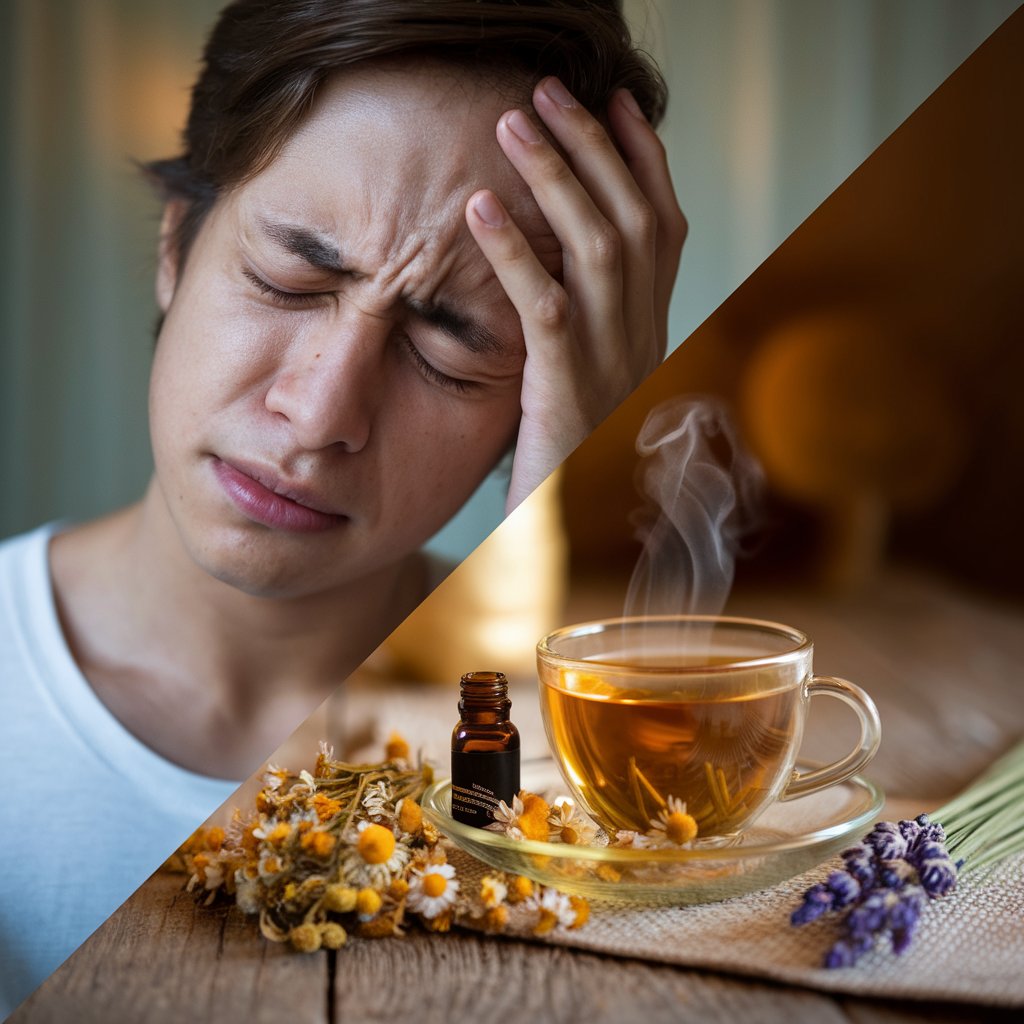Introduction
Headaches are a common ailment that most of us experience at some point in our lives. Whether it’s a dull ache or a sharp, throbbing pain, headaches can significantly impact our daily activities. But before reaching for over-the-counter painkillers, consider trying a natural remedy that has been used for centuries—herbal teas. In this article, we’ll explore what headaches are, their causes, symptoms, and how you can soothe your discomfort with a simple yet effective herbal tea recipe.
What is a Headache?
A headache is defined as pain or discomfort in the head, scalp, or neck area. It can vary in intensity, duration, and type, ranging from tension headaches to migraines. Understanding the nature of your headache can help you choose the most appropriate remedy.

Causes of Headaches
There are numerous potential causes for headaches, and they can be triggered by various factors:
- Stress: Stress is one of the most common triggers of headaches. It causes tension in the muscles of the neck and shoulders, leading to tension headaches.
- Dehydration: Lack of sufficient water intake can lead to dehydration, a significant cause of headaches. The brain temporarily contracts due to fluid loss, causing pain.
- Poor Posture: Spending long hours in front of a computer or using a smartphone can lead to poor posture, straining the neck and spine, which may result in a headache.
- Dietary Factors: Certain foods and beverages, like alcohol, caffeine, and processed foods, can trigger headaches in some individuals.
- Lack of Sleep: Inadequate or poor-quality sleep is another common cause of headaches. Regular sleep patterns are essential for overall health.
- Hormonal Changes: Women may experience headaches due to hormonal fluctuations during menstruation, pregnancy, or menopause.

Symptoms of a Headache
Headache symptoms can vary depending on the type of headache. Common symptoms include:
- Tension Headaches: Characterized by a constant, dull ache on both sides of the head. Often accompanied by tightness in the neck and shoulder muscles.
- Migraines: Intense, throbbing pain often localized to one side of the head. Can be accompanied by nausea, vomiting, and sensitivity to light and sound.
- Cluster Headaches: Severe, piercing pain usually around one eye. These headaches occur in clusters, often at the same time each day.

Recipe for Recovery: Herbal Tea with Feverfew or Chamomile and Lavender Oil
Now that we’ve discussed what headaches are, their causes, and symptoms, let’s dive into a natural remedy that can help alleviate headache pain—herbal tea. This recipe uses feverfew or chamomile, both of which are known for their soothing properties, and a drop of lavender oil, which adds an extra layer of relaxation.
Ingredients:
- 1 teaspoon of dried feverfew or chamomile flowers
- 1 cup of boiling water
- 1 drop of lavender essential oil
- Honey (optional, for sweetness)
Instructions:
- Prepare the Herbs: Start by placing the dried feverfew or chamomile flowers in a teapot or mug.
- Boil the Water: Bring a cup of water to a rolling boil. Once boiling, pour the water over the herbs in your teapot or mug.
- Steep the Tea: Cover and let the herbs steep for about 10 minutes. This allows the beneficial properties of the herbs to infuse into the water.
- Add Lavender Oil: After steeping, strain the tea to remove the herbs. Add one drop of lavender essential oil to the tea. Be careful not to add more, as essential oils are highly concentrated.
- Sweeten (Optional): If desired, add a teaspoon of honey to sweeten the tea. Stir well.
- Enjoy: Sip the tea slowly in a quiet, comfortable setting. Breathe deeply and allow the calming effects of the herbs and lavender to help relieve your headache.

Additional Natural Remedies for Headache
While the herbal tea recipe above is effective, there are other natural remedies you can try to alleviate headache symptoms:
- Peppermint Oil: Applying diluted peppermint oil to the temples can provide a cooling sensation and help reduce tension headaches.
- Magnesium Supplements: Magnesium deficiency has been linked to headaches, especially migraines. Taking a magnesium supplement may help prevent them.
- Ginger Tea: Ginger is known for its anti-inflammatory properties. Drinking ginger tea can help reduce headache pain, especially when caused by nausea.
- Hydration: Drinking plenty of water is essential. Sometimes, a headache can be relieved simply by rehydrating.

Conclusion
Headaches can be debilitating, but nature offers gentle and effective remedies to help manage the pain. By understanding the causes and symptoms, you can choose the most appropriate treatment for your specific type of headache. Herbal teas, like the one we’ve highlighted, provide a natural and soothing option for relief. Remember to listen to your body, stay hydrated, and consider natural remedies as your first line of defense against headaches.


